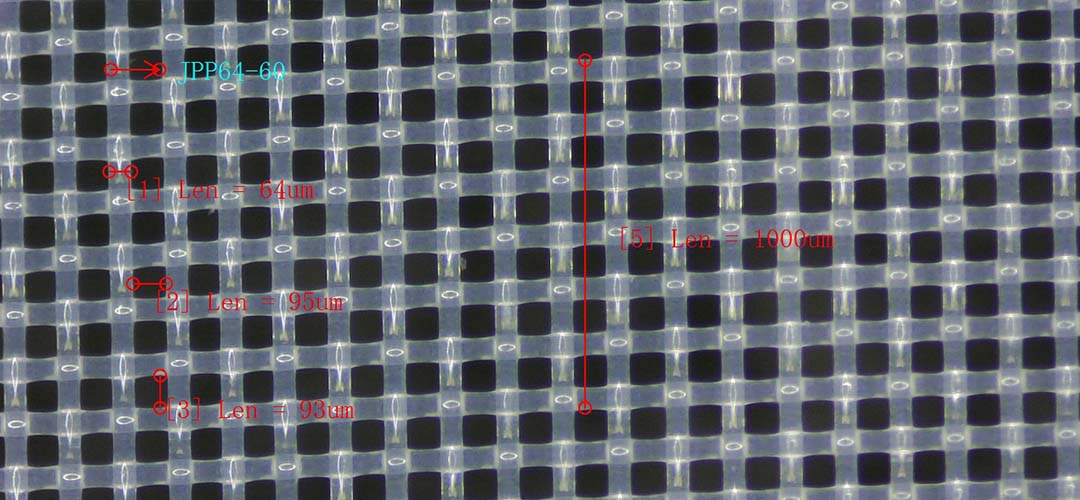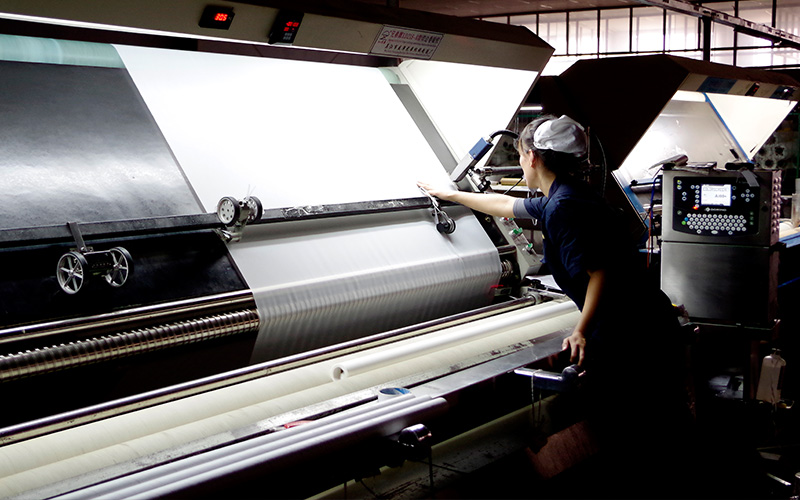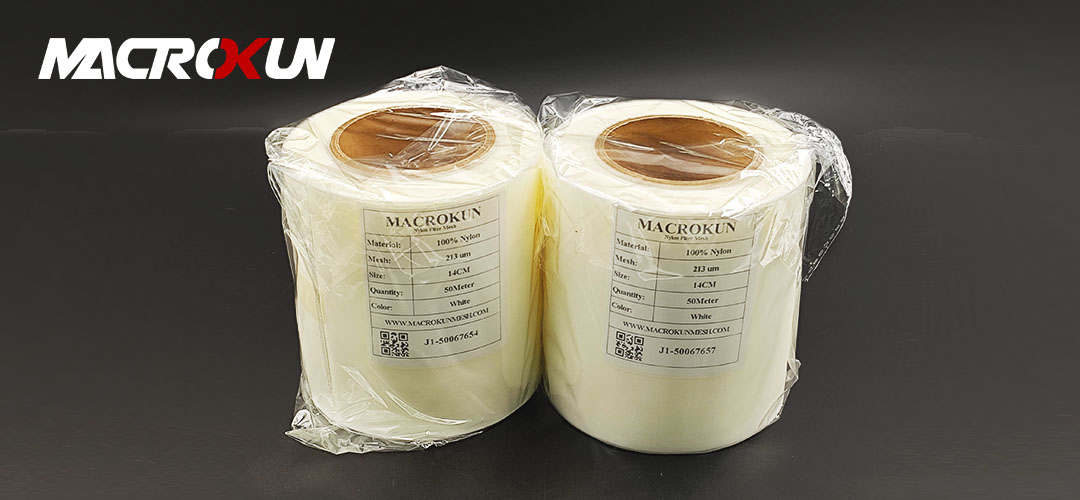In the world of automotive manufacturing, precision and efficiency are key factors in producing high-quality vehicles. One crucial component that plays a significant role in the production process is the use of 160 micron mesh. This fine mesh material is utilized in various industrial applications within the automotive industry, providing numerous benefits that help streamline manufacturing processes and improve overall product quality.

One of the primary uses of 160 micron mesh in automotive manufacturing is in the filtration of fluids and gases. This mesh is commonly used in filtration systems to remove impurities and contaminants from lubricants, coolants, and other fluids used in the production of vehicles. By effectively filtering out particles as small as 160 microns, this mesh helps ensure that the fluids circulating through the manufacturing equipment are clean and free of debris, which in turn helps prevent equipment damage and maintain optimal performance.
Additionally, 160 micron mesh is also used in the production of automotive components such as fuel filters and air filters. These filters play a crucial role in ensuring the proper functioning of a vehicle’s engine by removing harmful particles and pollutants from the air and fuel that enter the engine. By using 160 micron mesh in the manufacturing of these filters, automotive companies can produce high-quality filters that effectively remove contaminants while maintaining optimal airflow and fuel flow rates.
Another important application of 160 micron mesh in automotive manufacturing is in the production of composite materials. Composite materials are increasingly being used in the automotive industry to reduce vehicle weight, improve fuel efficiency, and enhance overall performance. 160 micron mesh is often used as a reinforcement material in composite manufacturing processes, helping to improve the strength and durability of the final product. By incorporating this fine mesh material into composite structures, automotive manufacturers can create lightweight yet strong components that meet the stringent performance requirements of modern vehicles.
Furthermore, 160 micron mesh is also utilized in the production of automotive upholstery and interior components. This fine mesh material is often used as a backing material for upholstery fabrics, providing support and structure to the final product. By using 160 micron mesh in the manufacturing of automotive upholstery, companies can create durable and long-lasting interior components that withstand the rigors of daily use and maintain their appearance over time.

In conclusion, 160 micron mesh plays a crucial role in various industrial applications within the automotive manufacturing sector. From filtration systems to composite materials and upholstery, this fine mesh material offers numerous benefits that help improve manufacturing processes and enhance product quality. By incorporating 160 micron mesh into their production processes, automotive companies can achieve greater efficiency, precision, and performance in the production of high-quality vehicles.
In the aerospace industry, precision and reliability are paramount. Every component must meet strict standards to ensure the safety and efficiency of aircraft. One crucial element in the manufacturing process is the use of 160 micron mesh. This fine mesh plays a vital role in various industrial applications within the aerospace sector, providing a range of benefits that contribute to the overall quality of aerospace components.
One key application of 160 micron mesh in the aerospace industry is in the production of composite materials. Composite materials are widely used in aircraft construction due to their lightweight and high-strength properties. The use of 160 micron mesh in the manufacturing process helps to ensure the uniform distribution of fibers within the composite material, resulting in a stronger and more durable end product. This level of precision is essential in aerospace applications where even the smallest defect can have serious consequences.
| Class | Mesh Size (/cm) |
Mesh Size (/inch) |
Thread Dia (um) |
Mesh Opening (um) |
Thickness (um) |
Net Weight (g/m2) |
| NL4/1950 | 4 | 10 | 550 | 1950 | 1100 | 307 |
| NL5/1500 | 5 | 13 | 500 | 1500 | 1000 | 318 |
| NL6/1267 | 6 | 15 | 400 | 1267 | 800 | 244 |
| NL7/1079 | 7 | 18 | 350 | 1079 | 700 | 218 |
| NL8/900 | 8 | 20 | 350 | 900 | 700 | 249 |
| NL9/861 | 9 | 23 | 250 | 861 | 500 | 143 |
| NL9/811 | 9 | 23 | 300 | 811 | 600 | 206 |
| NL10/750 | 10 | 25 | 250 | 750 | 500 | 159 |
| NL10/700 | 10 | 25 | 300 | 700 | 600 | 229 |
| NL12/583 | 12 | 30 | 250 | 583 | 500 | 191 |
| NL12/533 | 12 | 30 | 300 | 533 | 600 | 274 |
| NL14/514 | 14 | 36 | 200 | 514 | 340 | 142 |
| NL16/425 | 16 | 40 | 200 | 425 | 340 | 160 |
| NL20/350 | 20 | 50 | 150 | 350 | 255 | 113 |
| NL20/300 | 20 | 50 | 200 | 300 | 340 | 200 |
| NL24/267 | 24 | 60 | 150 | 267 | 255 | 135 |
| NL28/237 | 28 | 70 | 120 | 237 | 204 | 101 |
| NL30/213 | 30 | 76 | 120 | 213 | 204 | 110 |
| NL32/213 | 32 | 80 | 100 | 213 | 170 | 80 |
| NL36/178 | 36 | 90 | 100 | 178 | 170 | 90 |
| NL40/150 | 40 | 100 | 100 | 150 | 170 | 100 |
| NL43/153 | 43 | 110 | 80 | 153 | 136 | 70 |
| NL48/128 | 48 | 120 | 80 | 128 | 136 | 77 |
| NL56/119 | 56 | 140 | 60 | 119 | 102 | 50 |
| NL64/96 | 64 | 160 | 60 | 96 | 102 | 58 |
| NL72/89 | 72 | 180 | 50 | 89 | 85 | 45 |
| NL80/75 | 80 | 200 | 50 | 75 | 85 | 50 |
| NL100/57 | 100 | 250 | 43 | 57 | 73 | 46 |
| NL110/48 | 110 | 280 | 43 | 48 | 73 | 52 |
| NL120/48 | 120 | 300 | 35 | 48 | 60 | 37 |
| NL120/40 | 120 | 300 | 43 | 40 | 73 | 55 |
| NL130/42 | 130 | 330 | 35 | 42 | 60 | 40 |
| NL130/34 | 130 | 330 | 43 | 34 | 73 | 61 |
| NL140/36 | 140 | 350 | 35 | 36 | 60 | 43 |
| NL157/25 | 157 | 400 | 43 | 25 | 73 | 74 |
| NL180/20 | 180 | 450 | 39 | 20 | 66 | 68 |
| NL200/15 | 200 | 500 | 39 | 15 | 66 | 76 |
| NL220/10 | 220 | 550 | 39 | 10 | 66 | 84 |
| NL240/5 | 240 | 600 | 39 | 5 | 66 | 91 |
Another important use of 160 micron mesh in the aerospace industry is in the production of filters for hydraulic systems. Hydraulic systems are critical components in aircraft, responsible for controlling various functions such as landing gear operation and flight control surfaces. The use of 160 micron mesh in hydraulic filters helps to remove contaminants and ensure the smooth operation of these systems. By maintaining clean hydraulic fluid, the risk of system failure is reduced, enhancing the safety and reliability of the aircraft.
In addition to composite materials and hydraulic filters, 160 micron mesh is also utilized in the production of precision components such as fuel nozzles and engine parts. These components require a high level of accuracy and consistency to meet the stringent requirements of the aerospace industry. The use of 160 micron mesh in the manufacturing process helps to achieve the tight tolerances necessary for these components, ensuring optimal performance and longevity.
Furthermore, 160 micron mesh is instrumental in the production of aerospace fasteners. Fasteners are essential for holding aircraft components together and must be able to withstand the extreme conditions experienced during flight. The use of 160 micron mesh in the manufacturing of fasteners helps to ensure that they are free from defects and meet the necessary strength requirements. This level of quality control is crucial in aerospace applications where the safety of passengers and crew is at stake.
Overall, the use of 160 micron mesh in the aerospace industry offers a range of benefits that contribute to the quality and reliability of aircraft components. From composite materials to hydraulic filters and precision components, this fine mesh plays a crucial role in ensuring the safety and efficiency of aerospace systems. By providing a high level of precision and consistency, 160 micron mesh helps to meet the strict standards of the aerospace industry and deliver superior performance in critical applications.
In the oil and gas industry, filtration systems play a crucial role in ensuring the quality and efficiency of operations. One key component of these systems is the use of mesh filters, which help to remove impurities and contaminants from the fluids being processed. One particular type of mesh that has proven to be highly effective in this regard is the 160 micron mesh.
The 160 micron mesh is a versatile and durable material that is capable of capturing particles as small as 160 microns in size. This makes it ideal for use in oil and gas filtration systems, where even the smallest impurities can have a significant impact on the overall performance of equipment and machinery. By using 160 micron mesh filters, companies can ensure that their operations run smoothly and efficiently, with minimal downtime and maintenance costs.
One of the key benefits of using 160 micron mesh in oil and gas filtration systems is its ability to effectively remove solid particles from fluids. This is particularly important in applications where the presence of contaminants can lead to equipment failure or reduced efficiency. By using 160 micron mesh filters, companies can prevent these issues from occurring, ensuring that their operations remain productive and profitable.
Another advantage of using 160 micron mesh in oil and gas filtration systems is its high level of durability. Unlike other types of filters that may degrade over time or become clogged with debris, 160 micron mesh filters are designed to withstand harsh operating conditions and maintain their effectiveness for extended periods. This means that companies can rely on these filters to deliver consistent performance, even in the most demanding environments.
In addition to their durability and effectiveness, 160 micron mesh filters are also highly versatile and can be used in a wide range of industrial applications. From offshore drilling rigs to onshore processing facilities, these filters can be tailored to meet the specific needs of each operation, ensuring that they deliver optimal results in every situation.
Overall, the use of 160 micron mesh in oil and gas filtration systems offers a number of benefits for companies in the industry. From improved efficiency and reduced maintenance costs to enhanced performance and reliability, these filters are a valuable asset that can help companies achieve their operational goals and objectives.
In conclusion, the 160 micron mesh is a highly effective and versatile material that is well-suited for use in oil and gas filtration systems. By incorporating these filters into their operations, companies can benefit from improved efficiency, reduced maintenance costs, and enhanced performance. With their durability and effectiveness, 160 micron mesh filters are a valuable asset that can help companies achieve success in the competitive oil and gas industry.
In the world of food and beverage production, having the right equipment is essential to ensuring efficiency and quality in the manufacturing process. One key component that plays a crucial role in many industrial applications is 160 micron mesh. This versatile material is used in a variety of equipment and processes to help filter, separate, and screen materials, making it an invaluable tool for businesses in the food and beverage industry.
One of the primary benefits of using 160 micron mesh in food and beverage production equipment is its ability to effectively filter out impurities and contaminants. Whether it’s removing solid particles from liquids or separating different components of a mixture, this fine mesh is able to capture even the smallest particles, ensuring that the final product meets the highest quality standards. This is particularly important in industries where product purity is paramount, such as in the production of pharmaceuticals or specialty food items.
Another key advantage of using 160 micron mesh in food and beverage production equipment is its durability and longevity. Made from high-quality materials that are designed to withstand the rigors of industrial use, this mesh is able to maintain its integrity even under harsh conditions. This means that businesses can rely on this material to perform consistently and reliably over time, reducing the need for frequent replacements and repairs. This not only helps to save money in the long run but also ensures that production processes can continue uninterrupted.
In addition to its filtering and durability benefits, 160 micron mesh is also highly versatile and can be used in a wide range of applications within the food and beverage industry. From separating solids from liquids in brewing and distilling processes to sifting flour and other dry ingredients in baking and confectionery production, this mesh is a valuable tool that can be adapted to suit a variety of needs. Its flexibility and adaptability make it a popular choice for businesses looking to streamline their production processes and improve efficiency.

One area where 160 micron mesh is particularly useful is in the production of beverages such as beer and wine. In these industries, the quality of the final product is heavily dependent on the clarity and purity of the liquid, making filtration a critical step in the manufacturing process. By using 160 micron mesh in filtration equipment, businesses can effectively remove unwanted particles and sediment from the liquid, resulting in a cleaner, more refined product that meets consumer expectations.
Overall, the use of 160 micron mesh in food and beverage production equipment offers a wide range of benefits for businesses in these industries. From its ability to filter out impurities and contaminants to its durability and versatility, this material plays a crucial role in ensuring the quality and efficiency of manufacturing processes. By incorporating 160 micron mesh into their equipment and processes, businesses can improve the overall quality of their products, reduce downtime and maintenance costs, and ultimately enhance their competitiveness in the market.
Pre: Choosing the Right White Nylon Mesh for Your Needs
Next: Exploring the Versatility of Nitex Mesh Filters in Different Industries

MACROKUN has established long-term and stable cooperative relations with many transportation companies such as China Post, DHL, FEDEX, USPS, UPS, etc. Of course, MACROKUN can also provide air and sea transportation. The powerful logistics system enables all MACROKUN'S Printing Mesh, Filter Mesh and Filter Bags and so on to be easily and efficiently transported to any place. For quotes and inquiries, please email our sales team.





